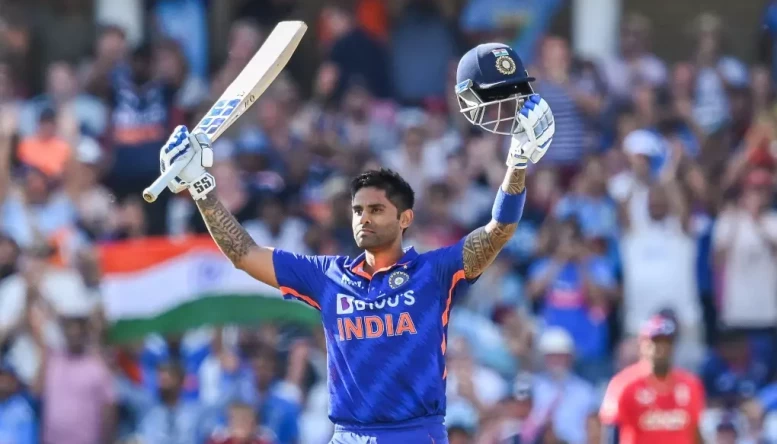T20 World Cup 2022: No risk, no reward - India's T20 squad deserves the 'conservative' tag
India's T20 World Cup 2022 exit led to a barrage of criticism from various pundits, experts, and former cricketers
 Suryakumar Yadav: Follows No risk, no reward model
Suryakumar Yadav: Follows No risk, no reward modelHowever, two notes stand out from former England captain Michael Vaughan and Indian commentator Harsha Bhogle.
"Since winning 50 over World Cup what have they done? Nothing. India are playing a white-ball game that is dated and have done for years. India are the most underperforming white-ball team in history. Every player in the world who goes to the Indian Premier League says how it improves their game but what have India ever delivered," Michael Vaughan wrote in his column for The Telegraph.
"I am just staggered by how they play T20 cricket for the talent they have. They have the players, but just do not have the right process in place. They have to go for it. Why do they give the opposition bowlers the first five overs to bed in?"
Harsha Bhogle echoed his sentiments, saying India continued to play 'conservative cricket' despite trying to shed that template and mindset.
"India is still playing very conservative cricket. It was an issue they hoped to address and, in all fairness, did in bilateral cricket."
"But here at the World Cup, India were constantly hoping the back 10 overs would bail them out. Today, it wasn't enough."
One of the more common sights when it came to the Indian openers Rohit Sharma and KL Rahul was that their slow approach at the start put pressure on the middle order.
This further became a knock-on effect if the middle order failed, meaning the lower order now had to hit from ball one – and they could not always do that.
Compare that to the approach taken by England. Even in matches where batting conditions were tough, like in their final Super 12s game against Sri Lanka or the semi-final against Pakistan, they looked for a quick start.
And this is despite the fact they were chasing small targets in both instances and could have taken things easy to start.
Instead, the openers went for it when the field was up so that, when the ball softened and hitting the big shots became tougher, the middle order could rotate the strike and put away the odd bad ball.
It was a key reason England could afford to take things easy afterward since their openers had taken a risk early on.
And even if they failed, they knew their middle order could bail them out. Yet crucially, they did not back down from taking a risk-first approach.
Contrast that to India's loss in the semi-final, when Rohit Sharma and KL Rahul made slow starts and got out not long after that.
The onus to accelerate the innings after that fell on Suryakumar Yadav, who perished trying to hit one off Adil Rashid. Most will say that he should have played out Rashid before looking to attack.
But he had to attack in the first place because India's openers had left them a lot of ground to makeup, thanks to their no-risk, no-reward approach.
And that is one of the main things India will have to do to not only shed the 'conservative' tag but also find future success in ICC tournaments.
Editor's Picks
- 01
Brendon McCullum: England ready to be 'really brave' in team selection for India series
- 02
Diogo Jota inspires Liverpool surge as injuries fail to dampen Premier League lead
- 03
Cameron Norrie ready to go toe-to-toe with the big boys after stellar Australian Open run
- 04
Maxwel Cornet confident of scoring run after opening West Ham account